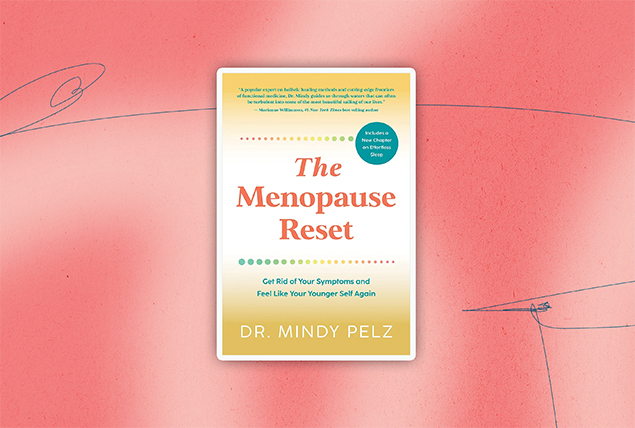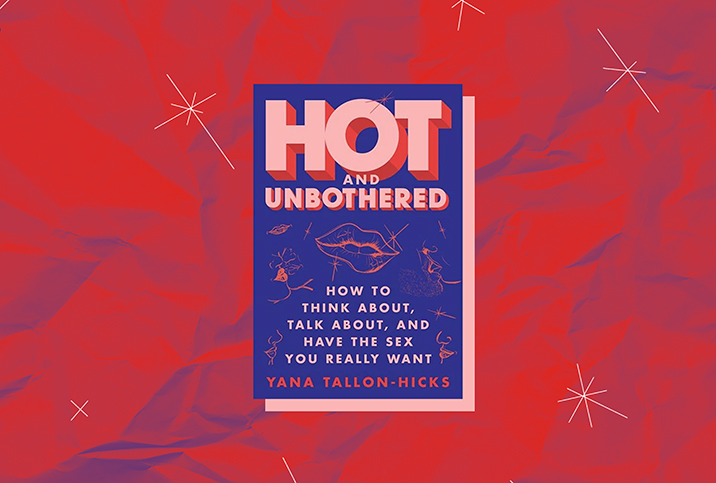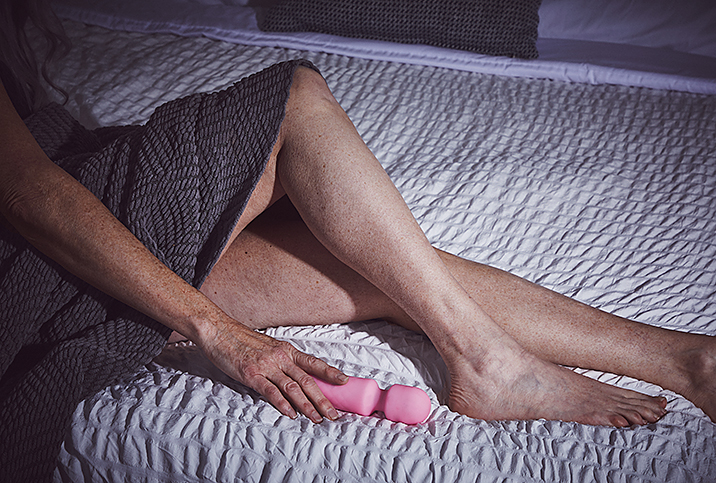Between the Pages: 'Menopause Reset' Offers Tips for Symptom Relief

Menopause is a natural life stage that marks the end of a woman's menstrual cycle. Common menopausal symptoms include hot flashes, sleep problems, night sweats, irritability, vaginal dryness and weight gain.
Nutrition and functional health expert Mindy Pelz, D.C. has helped thousands of women during menopausal years, mapping out positive lifestyle changes in her new book "The Menopause Reset: Get Rid of Your Symptoms and Feel Like Your Younger Self Again."
Pelz is also the author of "Fast Like a Girl: A Woman's Guide to Using the Healing Power of Fasting to Burn Fat, Boost Energy, and Balance Hormones."
She hosts "The Resetter Podcast," which seeks to empower listeners with "knowledge, tools, and science on all aspects of health and wellness." Her popular YouTube channel has received more than 44 million views.
In this exclusive interview, Pelz discussed how her personal experience inspired her to write "The Menopause Reset," how lifestyle modifications can relieve symptoms and more.
Editor's Note: This interview has been edited for length and clarity.
Please start by telling us about your menopause journey and how it inspired you to write 'The Menopause Reset.'
Pelz: Menopause hit me hard and nearly knocked me off my feet. I'd taken good care of myself my whole life and then all of a sudden, in my early 40s, it felt like everything was falling apart. I had anxiety, depression, mood swings and night sweats. I was irritable all the time. I felt like I had become a completely different person.
Looking back, I wish that when I turned 40, someone had told me I needed to change my lifestyle to meet the changes in my hormones.
That's what inspired me to write "The Menopause Reset." Women have a lot of tools at their disposal to make menopause easier, and I want to get the word out so other women don't have to suffer through it like I did.
What happens to a woman's hormones during menopause?
They basically disappear. Your estrogen and progesterone drop by 90 percent to 95 percent. Those are the big two, although they interact with other hormones, so you end up with all kinds of far-reaching effects, from weight gain to depression to loss of libido.
Aging is not for the faint of heart.
How does fasting relieve menopause symptoms?
Fasting does all kinds of good for menopause symptoms. It stabilizes blood sugar and gets your body running on ketones, both of which help with the fatigue and brain fog many women experience during menopause.
Fasting also decreases inflammation. When you're young, progesterone protects you against inflammation, but during menopause, you lose that protection. As a result, a lot of women experience sudden aches and pains.
Fasting is incredible for decreasing inflammation, and a lot of the women I work with say it makes a bigger difference in their daily pain than anything else they do.
Hot flashes are a common symptom of menopause. What are a few dietary and lifestyle changes that can provide relief?
One of the most common triggers of hot flashes is a surge in insulin, so if you're having hot flashes, I recommend making lifestyle changes that stabilize your blood sugar. You have a few options.
One is fasting—it will keep your blood sugar stable and low, and the effects will last not only during the fast but for about a day afterward.
Eating low-carb, and especially avoiding refined carbs like sugar, can make a huge difference in hot flashes. I work with a lot of women who have switched to a low-carb or keto diet and have had their hot flashes disappear entirely.
Exercise also stabilizes blood sugar for several hours. I like yoga and weightlifting, but you don't even have to do anything that intense. Just going for a 20-minute walk after a meal will keep your insulin more stable, which may keep hot flashes at bay.
Many menopausal women struggle with poor sleep. What are a couple of your favorite tips for getting a good night's rest?
Melatonin. It's your body's natural sleep hormone and it declines as you go through menopause, which is one of the big reasons menopausal women struggle to sleep well. The good news is you can buy melatonin at almost any pharmacy. Go for the 1 mg pills—higher doses actually aren't more effective—and take one about an hour before you go to sleep.
Pick up some magnesium glycinate as well. There's a wealth of research indicating magnesium eases stress and improves sleep quality. I suggest 400 mg of magnesium a night. You can take it alongside the melatonin.
Finally, avoid bright lights for at least an hour before bed. Stay off your computer and phone if you can. Nighttime exposure to blue light—like the kind you get from electronics—inhibits your body's natural melatonin production, which is already lowered during menopause.
What are your general thoughts on hormone therapy? Do you think women with particularly severe symptoms can benefit from it?
I think some women can benefit from hormone replacement therapy (HRT), but I wish people weren't so quick to jump to it.
If you're thinking about HRT, here's what I suggest: before you start taking hormones, read my book, "The Menopause Reset." It's full of actionable strategies you can use to relieve menopause naturally. Choose a few, try them for a month and see how you feel.
If your menopause symptoms start to go away, add a few more. See if you can manage your menopause symptoms without external hormones. In my experience, most women don't realize they have other options—but once they start making a few lifestyle changes, the results are actually better than they saw with HRT.


















